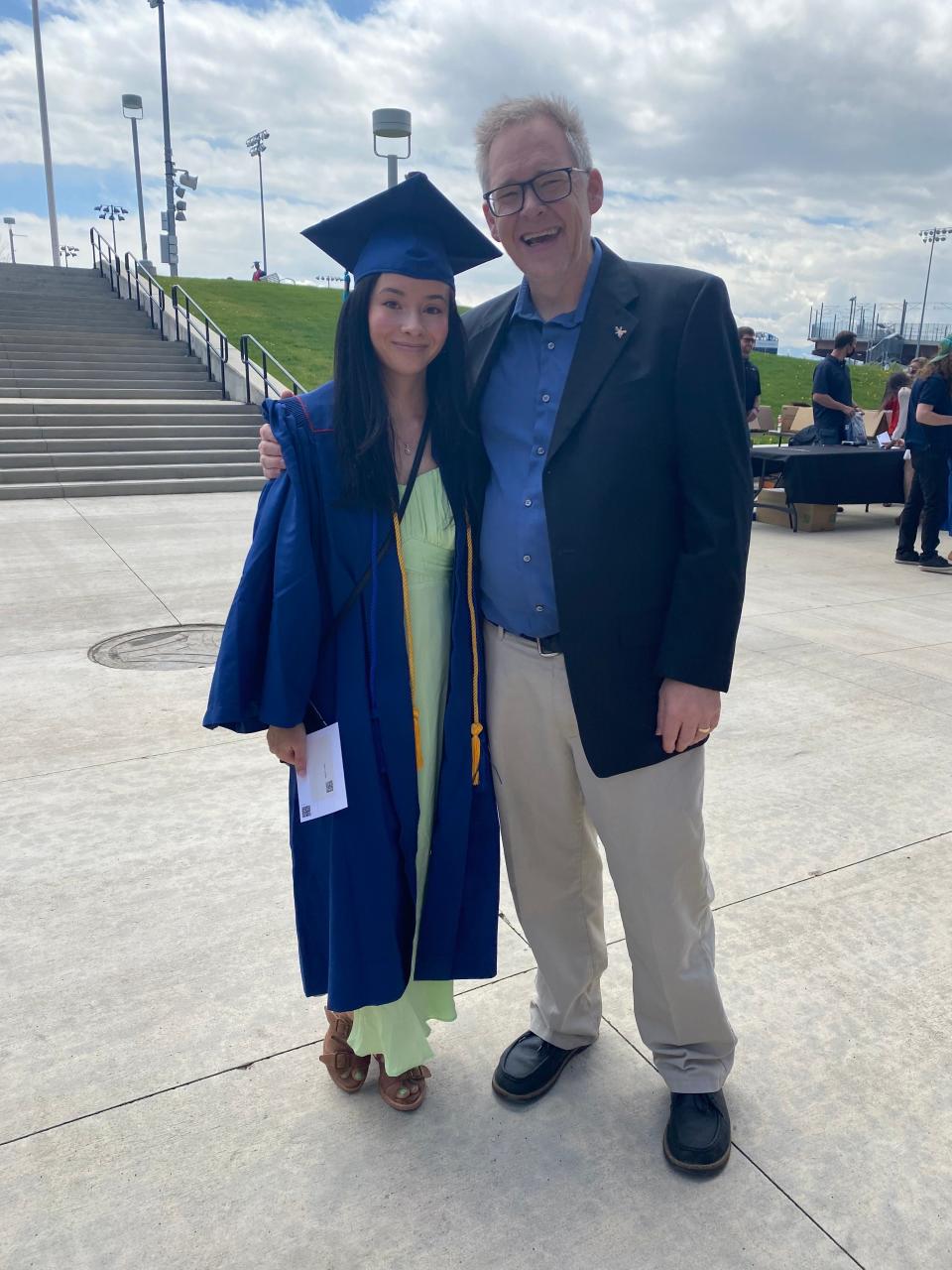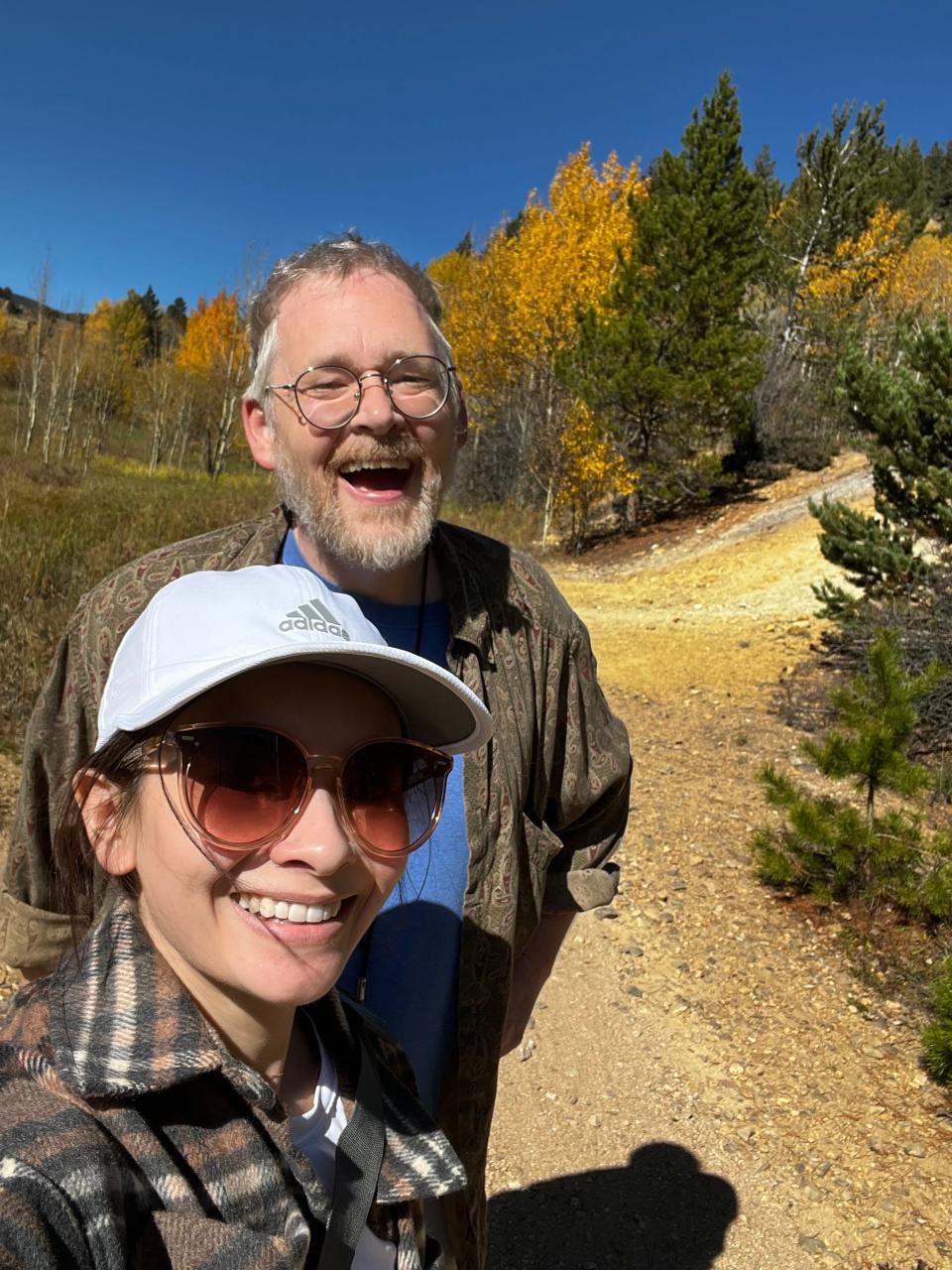Ancestry, 23&Me and when genetic screening gifts aren't fun anymore
Every family holds on to secrets. But what if one of those secrets was you?
You might receive a genetic screening gift this holiday season. Before unwrapping and sending in your saliva, though, know that genealogical services like Ancestry and 23&Me have unraveled many a family mystery – for better or worse. Often those affected are quick to grab their phones and divulge all to their social media followers.
One such person is Sabrina Laratta. The 27-year-old was waiting to hear back about her Ancestry results about a year ago. But her mom didn't wait for the results to spill the beans: The site might indicate that Laratta's father isn't actually her biological dad.
A paternity test confirmed it; a fact her mother hid from both Laratta and the father who raised her.
"I was devastated to learn that I didn't have this biological connection to my dad, like I had assumed I had my whole life," Laratta says.

Her sense of self evaporated. "While it doesn't change our relationship, it gives you this huge identity crisis," she says. "And the fact that I actually haven't seen or met the other person that has some part to do with why I exist, feels like something's kind of missing, still with that, too."
These women found out they were siblings Then, they found hundreds more. It has taken a toll.
Everyone signing up for genealogical programs should weigh some options before clicking submit. People may not love what they find – and experts say they must prepare themselves for whatever truths trickle out.
"Checking one's intention before sending in a sample would be wise; what happens if you discover things you didn't know previously about your existing family?" asks Maryanne Fisher, a psychology professor at St. Mary's University in Canada. "Can you still maintain your level of happiness within your family life if you were to discover the story you believed is not accurate? How will you cope with these changes if they occur?"
'Foundation has been kicked out from under you'
Trish Byrd remains confused. Betrayed. Isolated. She found out, like Laratta, some time ago that the father that raised her wasn't her biological dad after all. Her mother had been having an affair with their family doctor. It rattled the 64-year-old.
"You can't put it out of your mind because your whole foundation has been kicked out from under you," she says. She and her sister, also born out of the affair, have since reflected on their childhood and possible signs of her mother's relationship with the doctor.
"She would make the excuse to go over there at night," Byrd recalls. "Because he had an extra B12 shot or an extra shot that he had from the day and he wouldn't charge her if she came in after hours. That was a big red flag that we didn't even think about."
Family secrets like this "contribute to a sense of betrayal, undermining family connections and closeness as individuals discover that they are not biologically related to an individual despite being led to believe so," Loree Johnson, licensed marriage and family therapist, previously told USA TODAY.
'Connection to a culture'

In Laratta's case, her newfound paternity led to a newfound ethnicity. She discovered she's part-Japanese through her father's side, but passed as white growing up. "I would obviously always get questions," she says. "People would ask me if I'm Asian, mixed Asian. And I would ask my parents, like, 'why do people assume that or think that?'"
Johnson says that's a benefit of genealogical websites. "For people with curiosities about their ethnicity and family backgrounds, these sites can provide some connection to a culture they may have felt disconnected from."

Laratta reached out and spoke with her biological father briefly: "I just wanted him to know that I exist, because I feel like I just couldn't have that weighing on me. He did end up texting me back. And we texted back and forth for a little bit, and then ended up talking on the phone later that night, for a couple of hours, and we just talked about random things." They haven't spoken since – she has a close relationship with the father who raised her, after all – but she hasn't closed the door to getting to know him, either.
Coming to grips with her identity is not without its hiccups. "To finally now tell people like I am part-Asian and part-white, It does feel like kind of fraudulent sometimes," she adds. "In the sense of, well, I have this ethnicity, people can see that I look a certain way. But I don't have the culture at all. I didn't grow up with any Japanese relatives, I've never even been to Japan." She hopes to remedy her education and pay a visit someday.
'This was all a shock': When DNA test kits unearth family secrets, long-lost siblings
'I don't know where I fit in'
Both Byrd and Laratta found solace through NPE (non-paternity event) Facebook groups for people like them in DNA test result spirals.
It hasn't been enough to heal Byrd's disillusionment, however. "I've never felt so disconnected in my life," she says. "I mean, I don't know where I fit in. It's like, I want to go home. But I don't know where that is. That's the feeling. I long for something that's not there."
Fisher says uncertainty often remain after the DNA dust settles. "Many changes we face in life are a mixed bag; at times they will feel positive and negative, and we oscillate between those perceptions," Fisher says. "In life, we often cannot prepare ourselves for how we will react to unexpected change, but with these services, we can by asking about the intention to use them, and what we are prepared to do, and feel, if unexpected results are provided."
The long and short of it: Take a deep breath – and a long, thoughtful pause – if you choose to swab and send.
On losing your identity: Fired at 50, she felt like she'd lost everything. Then came the grief.
This article originally appeared on USA TODAY: Ancestry, 23&Me and DNA horror stories

